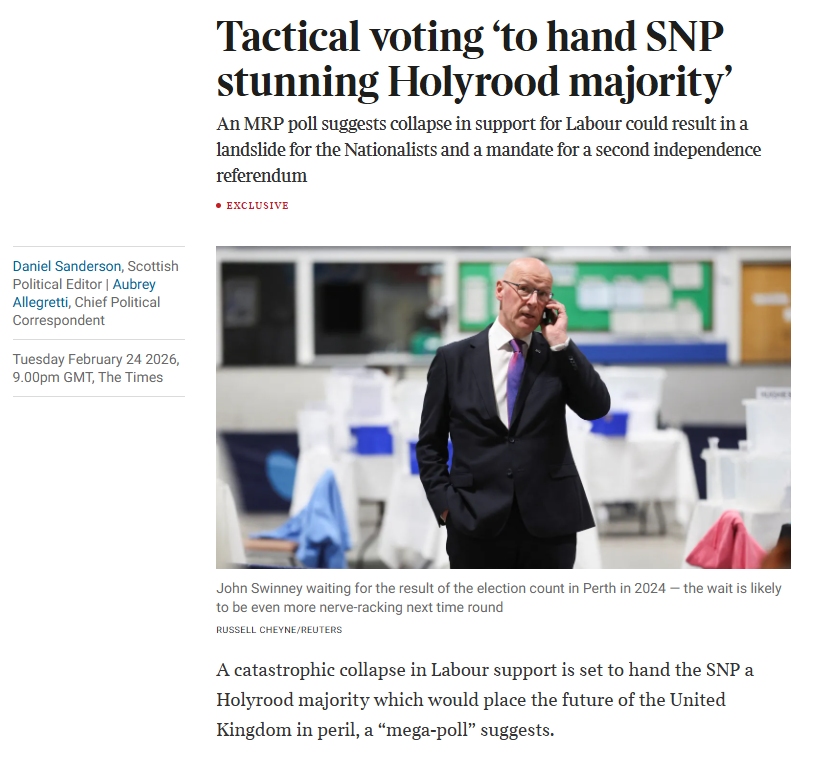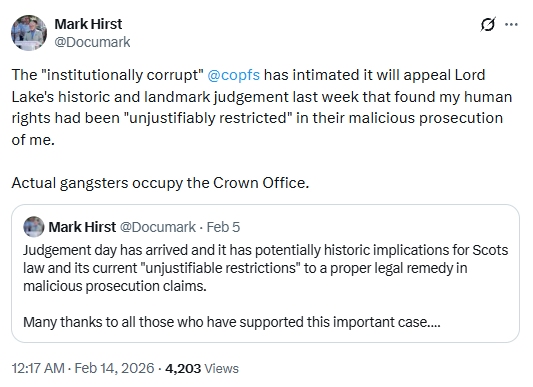Cannonballs, Kingdoms and Unions
‘Raadmand Davids Hus’ is one of the oldest and best conserved houses in Helsingoør. It was built by David Mellvin, a second-generation Scottish exile in 1694. He was a high-standing member of the city administration. Today his house is a cosy lunch cafe — and I’m here with my own second generation Scottish exile. It’sContinue reading "Cannonballs, Kingdoms and Unions"

‘Raadmand Davids Hus’ is one of the oldest and best conserved houses in Helsingoør. It was built by David Mellvin, a second-generation Scottish exile in 1694. He was a high-standing member of the city administration. Today his house is a cosy lunch cafe — and I’m here with my own second generation Scottish exile. It’s all bare beams and low ceilings. Quite a nice place to stop by for coffee and yummy cake.
As we’re waiting for the steamy machine to do its frothing thing, my daughter points me in the direction of a small notice on the wall. It’s in English and gives some historical background. Among other details it mentions two cannonballs embedded in the cellar. They’ve been lying there since 1807. Apparently, Lord Nelson fired some warning shots as he approached the Kronborg naval battery. To be honest, English cannonballs are just as much a feature of Copenhagen and its environs as cosy cafes.

This second attack on Copenhagen in 1807 (the first was in 1801) is described by one Danish commentator as the first-ever terror bombing of civilians in a European capital. Along with genocide, ethnic cleansing, and concentration camps, the regime in London has always been something of a pioneer in the field of colonial oppression and human rights violations.
There’s an interesting Scottish aside regarding the earlier act of aggression in 1801 (euphemistically referred to as the First Battle of Copenhagen). The Danes accepted the English terms after the assault, in part, because the Russian-led League of Armed Neutrality had collapsed. This happened after a palace coup in St Petersburg resulting in the assassination of Tsar Paul I of Russia. Rumour has it that London’s former ambassador in the city was a supporter of the plotters. Why am I not surprised? Whatever the truth of the affair, it was Court physician, Fife-born Dr James Wylie who embalmed the body of Tsar Paul, his benefactor.

Wylie was a pioneer of battlefield medicine and ‘served as a battlefield surgeon in the Russian Empire from 1790 until his death in 1854’. He was honoured by several European states during his lifetime. Who knew?
In 1807, the English fleet actually fired more than 6,000 grenades and sent 300 incendiary rockets onto the city. Of the 5,000 cannonballs fired, many remain embedded in the buildings they struck. The Danes left them there on purpose as a reminder to future generations of what the English navy, together with its press-ganged Scots and other Celts, did to their capital city. Some of the cannonballs are used quite decoratively. But the cold truth is that more than 3,000 Danes were essentially murdered as a result of the action.

Of course, the Irish and the Scots knew all about the viciousness of their Anglo-Saxon neighbours. The repression of the United Irishmen and United Scotsmen had just taken place. Thomas Muir was in exile, and within a decade English spies and provocateurs were setting up the 1820 Rising to fail – a failure that led to the medieval executions of James Wilson, John Baird, and Andrew Hardie. That’s how Perfidious Albion infiltrated and destroyed the independence movement of the 1820s. Sound familiar?
But I digress. The fear in 1807, allegedly, was that the vast fleet of the neutral Danish navy would end up on the side of France. This prompted the English ‘Pearl Harbour’ events of 1801 and 1807. Perhaps that’s where the Japanese got the idea for their 1941 attack?

The long-term effect of these ‘unprovoked aggressions’ on the Danish capital would ultimately lead to Norway exiting its Union with Sweden 100 years later. ‘How so?’, you may ask. Well, London’s attacks on Copenhagen effectively ended Danish neutrality. This in turn led the Danes to end up on the losing side at the Congress of Vienna in 1815. Norway, until then, a Scandinavian Scotland to Denmark’s England in their Nordic ‘union’, was ceded to the King of Sweden. This forced Union withStockholm, which no Norwegian had a say in, gave birth to a Norwegian nationalist movement.
Back above cannonball cellar, my daughter who trained as a barista during her gap year, seems unimpressed by the coffee, though she’s perhaps too polite to say so, since I was paying. We checked the lunch menu, which consists of traditional Danish open sandwiches, or ‘smørrebrød’ (pronounced ‘smoerebrood’ with a soft ‘d’), as it’s known. We agreed it would be worth a re-visit another day for a spot of lunch.
Fast forward to the late 19th century. The Swedes and Norwegians are diverging, politically, from each other.
“In Norway, the development went increasingly in a liberal-democratic direction, while the Swedish government and public opinion were characterised by conservatism and demands for the maintenance of the Union, without any kind of concessions.” (Source: Den Store Danske)
Sounds familiar doesn’t it? In fact, the more you learn about the build up to the dissolution of the Swedish-Norwegian Union the more deja vu it becomes.
Another issue between the two Scandinavian neighbours was regarding foreign policy and foreign representation.
“In Norway, the question of foreign policy independence gained great importance; the conservative Høyre saw a defense policy advantage in preserving the union and also wanted to stick to a joint Norwegian or Swedish foreign minister. The Liberals, on the other hand, wanted full foreign policy independence. It therefore caused anger when the Swedish Riksdag decided in 1885 that, in addition to the foreign minister, two Swedes against only one Norwegian should participate in the foreign policy discussions. Norwegian demands, to increase the number of Norwegian participants, were met with a Swedish counter demand that the foreign minister should be Swedish.” (Source: Den Store Danske)
So there you have it, a so-called Union where one partner bosses the other. Once again, this sounds familiar.
The crisis continued into the 1890s with Sweden spurning Norwegian requests for more autonomy on foreign policy matters.
“In 1892, Oslo put forward a proposal for an independent Norwegian consulate, which was adopted by the (Norwegian) Storting, but rejected by King Oscar II and the Swedish government… Several Storting decisions on their own consulate were rejected by the Swedish side, and in 1895 the Norwegians were threatened with war, through unofficial channels, if they defied the rejections.” (Source: Den Store Danske)
In Scotland’s case, England does not threaten us with war — it actively engages in open hostility, mostly via its London-centric propaganda media and by the more nefarious agencies of the security state.
Who can forget the post-2014 statement, from the ostensibly impartial civil service, about how normal rules do not apply if the ‘territorial integrity of the United Kingdom is threatened’. A remarkable statement really, considering the territorial integrity of Scotland has been violated since 1707, and particularly post-1746.
Leaving Raadmand Davids Hus, there’s a present-day reminder of Norway’s 1905 insistence on its national and international rights. We pass it on our way back to the car. It is, of course, the Norwegian Consulate in Helsingør. My daughter doesn’t remember it very well, but this is the foreign outpost of the Norwegian government in Denmark where her mother took her as a young child — to be registered as a Norwegian citizen. Oddly enough, although both my bairns have dual citizenship, neither of these are Danish. My wife, who wasn’t born in Norway either, gained hercitizenship through her late father, who was a very proud Norwegian.
And so by a twist of fate, and cold constitutional reality, I’m the only one of us who can vote in Danish parliamentary elections and referendums. Nicola Sturgeon’s inaction on Brexit left many of we exile Scots to jump through the many qualifying hoops for foreign citizenship. So as you can see, you don’t get to vote on constitutional issues in these Nordic countries just because you happen to livehere, or happen to be born in one, to foreign citizens. You need to acquire citizenship.
Small countries must, of necessity, guard their voter franchise, especially those next door to more populous nations. It’s been said before but it can’t be stressed enough — a majority of people born in Scotland voted for our nation’s independence in 2014. Over 52% answered with a Yes to the question of whether or not Scotland should become an independent nation. By normal international standards, this should have resulted in our ending the Union with England, but due to the bizarre franchise agreed, those who’d only been in Scotland a matter of months were given a vote. The 2014 franchise was a disgraceful betrayal of the rights of the people of our nation.
Oslo’s frustration, with its inferior role in the Union, came to a head early on in the 20th century. The country faced a kind of ‘James-Cleverly-ultimatum-to-Scotland’ situation.
“From 1903, Norwegian politics was again completely dictated by the question of revision or termination of the union… and the Norwegians again proposed legislation on their own consular system. In March 1905, [Prime Minister] Hagerup’s government was succeeded by a new coalition under Christian Michelsen, who implemented the law. King Oscar II, vetoed. The Norwegian government responded by resigning, which the king refused to accept, whereupon the government resigned on 7th of June 1905, and the Storting decided to dissolve the union.” (Source: Den Store Danske)
What the Norwegians actually did, was to declare their independence to the world community.

At this point in Scottish history, we can either look at Norway’s path to independence as a series of coincidental parallel events — or a template for affirmative action by Scotland’s elected representatives. Oslo certainly didn’t hesitate or lose its nerve, unlike Scotland under its former First Minister. A Norwegian-run confirmatory referendum was called for 13 August 1905. It was a landslide for #Yes. Negotiations to end the Union began on 31 August, and by 26 October 1905, the Swedish-Norwegian Union was over.
Another intriguing piece, in this constitutional puzzle, was that the crowns of Sweden and Norway were linked in a ‘personal Union’. However, after the dissolution of the Union, the Norwegian Crown was ‘vacant’ between 26 October and 18 November 1905. Yes, vacant. Clearly, the Union of the Crowns did not dissolve or abrogate the Norwegian crown. It continued to exist, much as the Scottish crown does.
There was no obvious heir to the throne. But post-independence, Norwegians opted for a constitutional monarchy by electing Prince Carl of Denmark as King. Carl took the Old Norse name ‘Haakon’, and became Haakon VII — the first king of an independent Norway since 1387.
For we Scots, it’s now obvious that devolution has had its day. It is no more than a London-veto on Scottish aspirations. But the question is, do our elected representatives have the Nordic courage to abandon the English colonial construct at Holyrood, with its London-centric civil service? Allowing the likes of Leslie Evans to wreak havoc, and an alleged MI5 spook to operate as Crown Agent, is just not on. Our neighbour imposes its broadcasting, its press control, electoral control, and has even usurped the Scottish Crown. It has also attempted, rather successfully, to bury our historic constitutional rights.
Some say we must come to an accommodation with London in order to exit the Union. This usually means asking for permission. It’s a path for the timid and for those whose ambition reaches no higher than well-paid deference to the British state. When the door of escape is open you flee your hostage taker, you don’t feather your captive nest.
If our elected representatives won’t do it, we must sweep them aside at the ballot box, and find others who will. #GE2024 will be the first opportunity for the Yes movement to abandon the corrupted ruling party and replace it with representatives who will act immediately on the mandate.
But that is not enough. The people of Scotland must never again allow their national destiny to be left solely in the hands of gravy-train politicians, or to the whim of a corrupt nepotistic married couple. In parallel with political avenues, it is time that we, the Scottish people, gathered in a popular, non-political movement to take our case internationally. Salvo.scot and Liberation.scot are working to achieve this, not to mention reviving aspects of the Scottish UN Committee .
The colonial regime in London may try to ban our politicians from establishing diplomatic relations, but as in the case of Norway, a Union partner cannot stop a people exercising its international right of self-determination.
MY COMMENTS
Peter once again explains how we can learn from our neighbours and their routes to success and Independence. I share Peter’s view that progress will be much more likely if the Liberation Movement is non Party political, free of the distractions and temptations, but people led and with a determination to stay on track. We will need political support at some stage but the platform and control must lie with the Liberation Movement. Politicians are welcome to participate but they must not try to usurp the people whose efforts are driving the cause relentlessly forward. We know the route that must be followed. We must strain every sinew to make it happen.
I am, as always
YOURS FOR SCOTLAND.
BEAT THE CENSORS
Regretfully there are some among us who seek to censor what others read. Sadly within the YES movement there are sites which claim to be pro Indy but exist to only promote one Party and will not publish articles which come from bloggers who don’t slavishly support that Party to the exclusion of the rest of the YES movement. I ask readers who support free speech to share articles from Yours for Scotland as often as possible as this defeats the effectiveness of the censors.
FREE SUBSCRIPTIONS
Free subscriptions are available on the Home and Blog pages of this site. This allows,for an email of each article to your Inbox and that is now how several thousands get my articles each day. This avoids problems that some have experienced gaining access from Twitter and Facebook. You will be very welcome to choose whatever route works best for you.
SALVO
The work and important development of Salvo has been a beacon of hope in 2022 and as it develops Salvo is creating campaigning hubs throughout Scotland. Salvo will join with Liberation.Scot and as the campaigning arm of Liberation we are looking at very effective campaigns kicking off very early this year and introducing some new campaigning methods as well as those that have worked well in the past. This requires money so all donations to this site, once the running costs are covered, will go to support the work of Salvo/ Liberation. I think you will see it well used and effective.
LIBERATION.SCOT
We are seeking to build Liberation.Scot to at least 100,000 signatures just as quickly as we can. This is part of our plan to win recognition as an official Liberation Movement via the United Nations. We intend to internationalise our battle to win Independence and through the setting up of our Scottish National Congress will prepare and develop our arguments to win progress in the International Courts. Please help by signing up at Liberation.Scot. It is from those who sign up to Liberation.Scot that the membership of the SNC will be created by ballot.
What's Your Reaction?










































